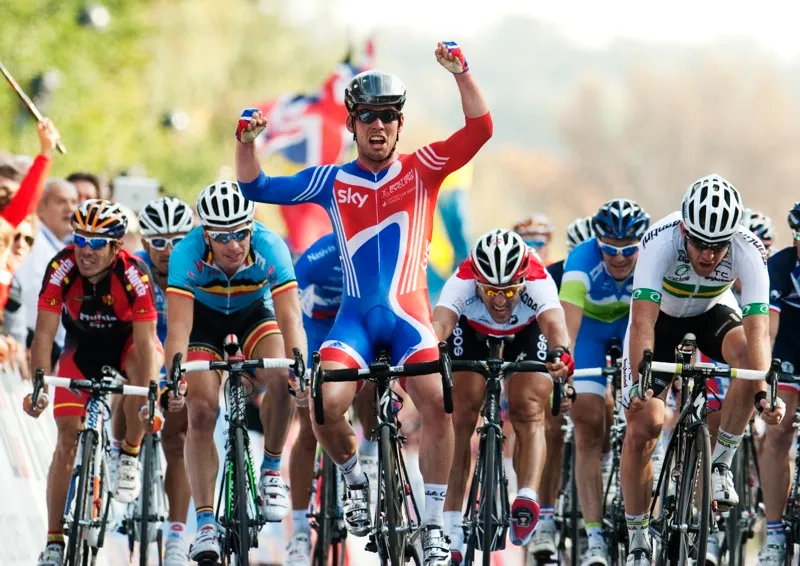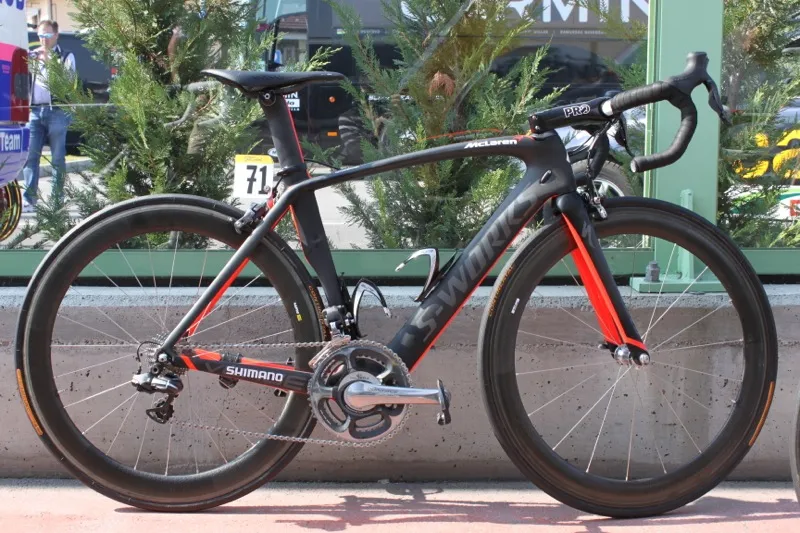When Britain’s Mark Cavendish rode to his road world championship win in Denmark last month he did so on a Specialized bicycle. In May, Alberto Contador (Saxo Bank) did the same at the Giro d’Italia, having handed the California-based company their first Tour de France victory last year.
The question is, do these high-profile triumphs help sell bicycles? “No questions,” says Jay Townley, leading bicycle industry analyst and partner in the Gluskin Townley Group. “In the specialty bike world, at least in the United States, these victories do matter.”
Townley says there's an enthusiast sub-culture of cyclists who are interested in what the pros ride, especially in high profile events, notably the Tour de France. This is backed up by BMC Cycling, who reported to BikeRadar at this year’s Interbike show that sales increased immediately after Cadel Evans took home the yellow jersey in Paris.
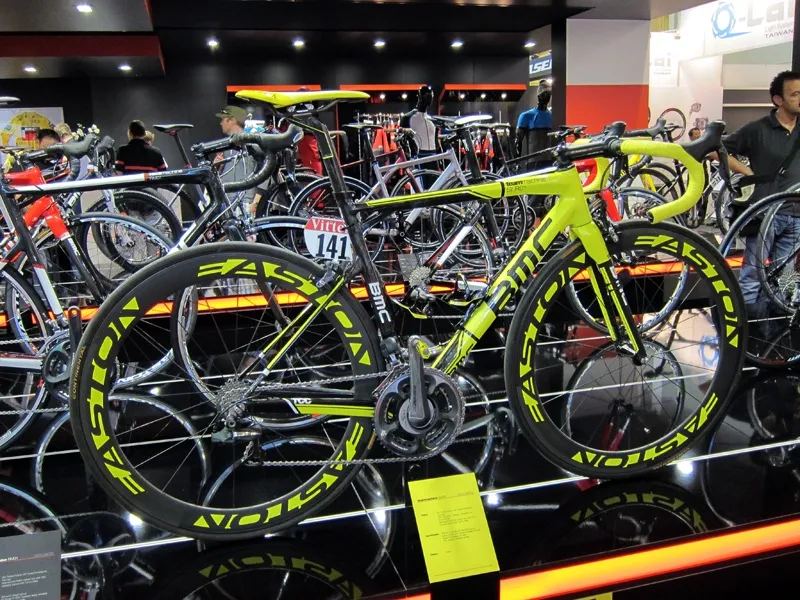
Cadel Evans' commemorative BMC at the Eurobike tradeshow
“It's hard to track the sales increases due to wins and athletes,” says Nick Sims of Specialized, adding that it isn’t just victories that are important, but podium finishes and a good showing in general on the road. “I can tell you, since we launched the Venge we've sold most of them that came in.
"This is a bike that we didn't have in the line so it's only been seen online, when we launched the partnership with McLaren, and on TV, winning races like Milan San Remo and tour stage wins with Cav. So for sure, athletes and race wins generate sales.”
Athletes endorsing products is nothing new, but in the US at least, the practice didn't have a major impact within the world of cycling until the rise to fame of seven-time Tour de France champion Lance Armstrong, the man responsible for what's been called the 'Lance Effect'.
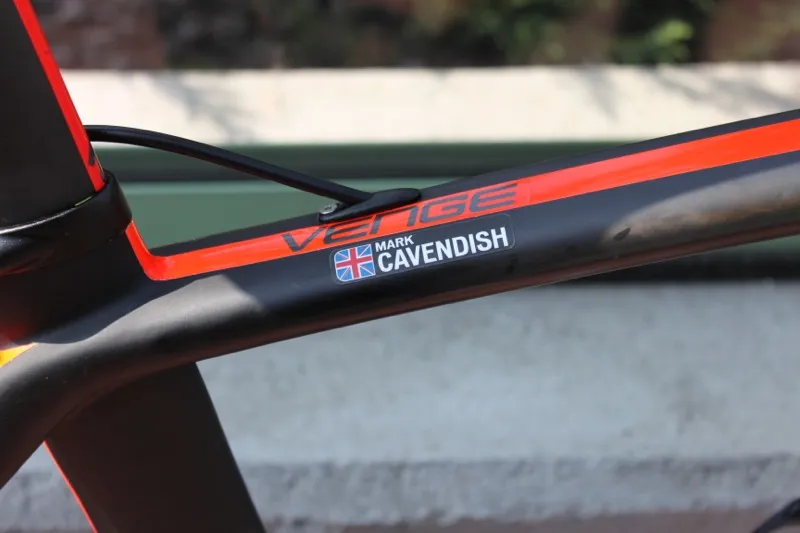
Cavendish's Specialized McLaren Venge bike
“What Lance did, as an athlete that transcended culture, was raise awareness of road cycling throughout the United States and in other pockets of the world where cycling may not have been a long-standing, popular sport,” Eric Bjorling, lifestyle marketing guy for Trek Bicycle Corporation, tells BikeRadar.
“Obviously, Trek benefited in a large way as Lance rode our products to previously unseen heights. Not only that but that increased interest and Lance's intense involvement in our product development efforts drove a lot of our growth and innovation. Throughout the Lance years, we learned how to utilize our athletes’ experience and expertise in our development efforts.”
Bjorling says sales of Trek products have continued to increase in the years since Lance’s retirement, due to increased global brand awareness. “Look at the high-end market, and especially the European racing scene, and the millions of dollars put into it,” he says. “That's mostly for the European market, but it spills over to the US enthusiast market too.”
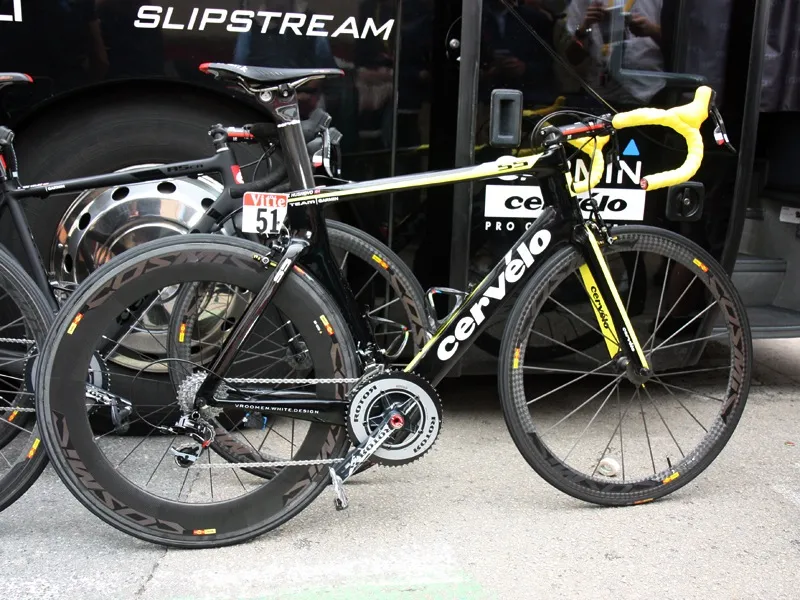
Cervelo have used the American Garmin team to successfully market their bikes
Brand awareness differs as you cross the Atlantic. "In Europe they're more focused on the races and who's riding what as cycling is much more of a mainstream sport that it is over here,” says Specialized’s Sims. “[In the US] riders like Lance have helped bring cycling to the mainstream and have brought people from outside our world into cycling, and they're looking more at the brand of bike that he rides than the model."
He adds: "We use our athletes in most of our ads and that helps people see the riders at races like Paris-Roubaix. Maybe they have a bumpy road and want to be those guys so they'll buy a Roubaix.” Sims points out that sponsorship deals aren't just about selling bikes, they're also about product development.
Despite the struggling economy and the fact that in the US pro cycling isn't even close to the list of top spectator sports, Townley says bike companies continue to see sponsorships as a good way of promoting their brands. Many companies now take their top dealers to some of the European grand tours.
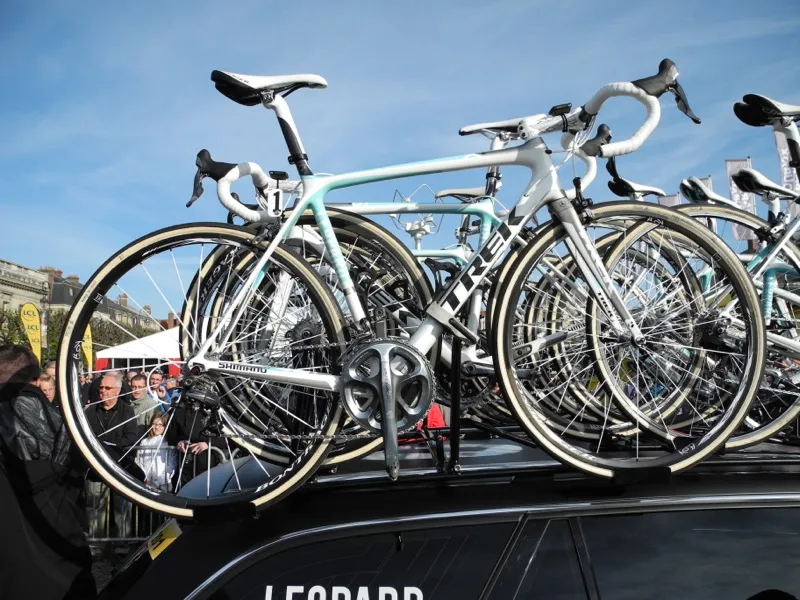
Trek say their sponsorship of Leopard-Trek this past season helped sell their bikes
According to Bjorling, when the Leopard-Trek team was announced last year, the Wisconsin-based company's European business saw an "almost instantaneous increase in the interest of the brand" which was reflected in increased sales. “While it was important that the team rode the bikes, it was even more crucial that the brand was a part of the founding of the team and appeared on the masthead,” he says.
This was also apparent this year with high-profile tours making a comeback in the United States and Trek bicycles being ridden to victory in both California and Colorado. “Chris Horner’s win [in the Tour of California] represented something great in a category relatively new to the company,” says Bjorling.
"It was the first big win for Bontrager shoes. [It] coincided with the retail launch of the shoe he was wearing so timing couldn't have been better. Wins and athlete endorsements are great but the value to a brand lies in how they utilize it.”
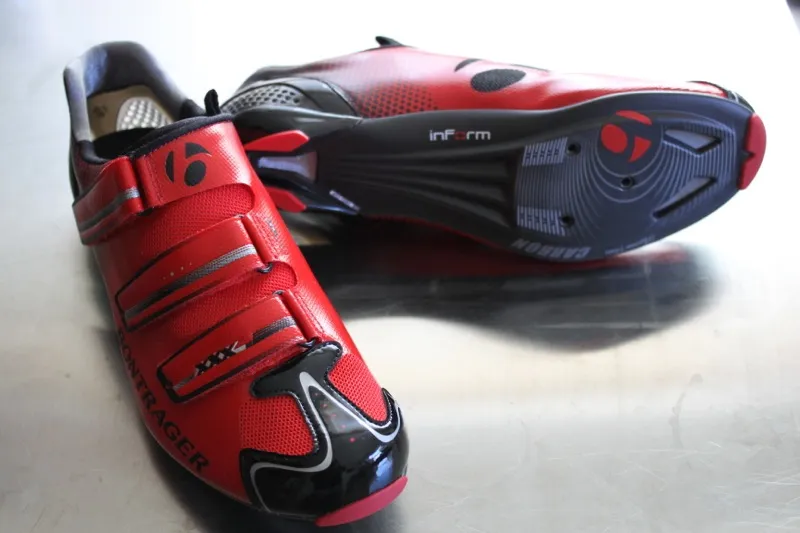
Trek's Bjorling says Chris Horner helped sell their new shoes with his victory at the 2011 Tour of California
Bjorling says that while winning is good, it isn’t everything. A good showing, a good team and, most importantly, a good product matter too – and the key is how all that comes together after the podium. “It’s all about striking a balance,” says Bjorling. “A good showing is great but what you do with that result is just as important.
"Do you let the moment pass and hope that people pick up on it and make the connection, or do you help them arrive at a place to make the connection between your product and the results of your athletes? The brands that utilize their athletes and their efforts in diverse ways are typically the ones that benefit the most.”
